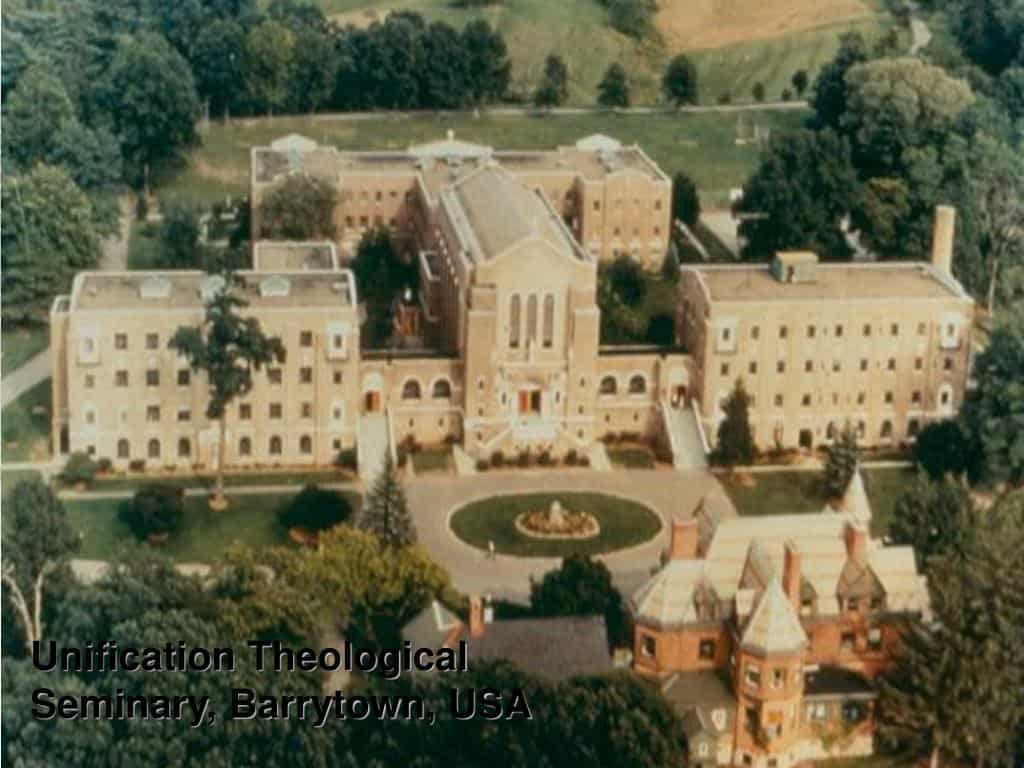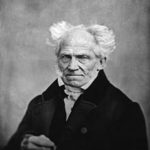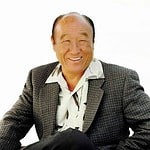Needless to say, there have always been ‘movers and shakers’ in the world — great storytellers — and always will be. I know one of them, at least a bit: the late Rev. Sun Myung Moon.

Being personally touched by most any saint or sage, any leader of some sort, that is any genius, thinker, feeler, lover, hater, good man, evil man, good woman, evil woman, is probably a remarkable experience — for better or worse. The late Rev. Moon had touched my life a few decades ago for better, and I am glad he did.
One of the best things he did for me was inviting me in 1981 to attend the Unification Theological Seminary, then located in the scenic Hudson Vally of Upstate New York, to study theology, philosophy, world religions, psychology, church history, sociology, and a few other fair subjects one must study for a Master’s Degree in Religious Education.
Philosophy, after all these years, stayed with me as it has not much of any agenda and thus serves as my respite from the unpleasantries of life (duties and obligations, etc.). I fondly remember reading The Cambridge Companion to Rawls during the Fall of 2008 on Pacific coast’s Grey Whale Beach near San Francisco. What a treat those ideas and the very sunny days were!
In any case, I cannot help reflecting today on my experience with all things Unification and love and life in the context of philosophy. How does all that fit together, if at all? Well, let’s start with Hobbes and Schopenhauer, and then go on to Hume and Moon. Obviously, there are many more great minds and hearts worth quoting, but these four ‘gentlemen’ will do for now. I am also interested in the writings of Simone de Beauvoir and other women, but presently cannot fit them into this post’s train of thought.
Thomas Hobbes

The life of men is “…solitary, poor, nasty, brutish and short.” – as English philosopher Thomas Hobbes suggested in his 1651 book Leviathan. Hobbes (1588–1679) was a sort of empiricist who thought that all of our ideas are derived, directly or indirectly, from sensation. He wrote with wide-ranging interests and is considered to be one of the founders of modern political philosophy.
To that point, the book Leviathan is occupied with justifying the necessity of a strong central authority or absolute monarchy to avoid the evil of discord and civil war. In a state of nature, Hobbes postulates, that is without government, each person would have a right, or license, to everything in the world. This, Hobbes argues, would lead to a “war of all against all.”
Whoa, most people do not want to think about that. Yes, nobody ever made a successful movie out of that theme, with the exception of perhaps the movie Lord of Flies. Instead, I ‘love’ Tom Hanks in the upbeat movie Forrest Gump. Yes – that’s more like it!
So, according to Hobbes, if it was not for the modern political community, the life of man perhaps would be solitary, poor, nasty, brutish, and short. Yet, the recent election battle between Trump and Biden was not far from it. Unnervingly, Hobbes was not the last to pronounce a skeptical view of the human condition.
Arthur Schopenhauer

German philosopher Arthur Schopenhauer (1788–1860) is also well known for his depressing-as-some-would-say views on existence and life. Like classical Indian philosophers, he observed that suffering is essential to life and that human willing — desiring, craving, etc. — is at the root of that suffering. Here is one of his more prominent lines.
However, Schopenhauer viewed love itself positively, seeing it as one of the key motivations for human activity. Still, he found a way to be pessimistic about it. He argued that most people would pick horrible spouses, have too many children, and end up miserable anyway. That was then, I think.
According to Schopenhauer, a glance at the world around us disproves the defining thesis of German polymath Gottfried Leibniz’s optimism that ours is the best of all possible worlds. On the contrary, Schopenhauer claims, if our world is ordered in any way, it is ordered to maximize pain and suffering. Nature is pitting one creature against another, either as the devourer or the devoured, in a deadly fight for survival.
This might be the case on a savage level of existence, but — as I believe — modern humans have come to circumvent this unpalatable truth via the establishment of community and culture — a novel upper layer of being in the world. Not that culture cannot give rise to savagery as it has allowed for during the World Wars, but culture also gave rise to social and religious norms such as the benevolent practice of compassion and charity.
Overall, modern humans have transcended the realm of animal suffering by inventing desirable affairs like love, friendship, art, and religion. This, and arguably their love as the pinnacle of all ends, and while not disproving Hobbes’ and Schopenhauer’s sentiments, has made life worth living. It’s just not a slam dunk.
Here’s a good read – https://aeon.co/essays/for-schopenhauer-happiness-is-a-state-of-semi-satisfaction
However, this is probably a good-enough moment to switch attention to more upbeat movers and shakers, lest one’s heart wants to sink to the bottom of the Pacific ocean.
David Hume

David Hume (1711–1776) is generally regarded as one of the most important philosophers to write in English, as well as a great essayist. Readers of Hume’s moral philosophy will point out that it is rather naturalistic, which I now favor. That is, instead of basing morality on religious and divine sources of authority, Hume seeks an empirical theory of morality grounded on observation of human nature. He wrote prominently about the role of human emotion in thought and action.
Nancy Schauber explains in Hume on Moral Motivation: It’s Almost like Being in Love that one of the defects Hume identifies in rationalist theories of morality (Kant, etc.) is the inability of the rationalist to give a sufficiently direct account of the relation between moral evaluation and moral motivation. According to Hume, any plausible account of this relation must explain how moral evaluation directly moves us to act. With respect to moral evaluation, Hume holds that ‘to make a sincere moral pronouncement is to have a motive to act.’
To Hume, moral evaluation is a passional response and that, suitably understood, this fact accounts for its motivational properties. More specifically, Hume claims that moral evaluation is identical to a specific (pair of) passion(s), namely, love (and hatred).
Richard C. Sha opens his interesting essay on Hume’s philosophy of emotions in a captivating manner: ‘In his Treatise of Human Nature, the Scottish philosopher David Hume argued that: ‘Reason is, and ought only to be the slave of the passions …’ By ‘passions’, Hume meant what we now call emotions. What gave him such faith in the passions that he could accept reason’s enslavement to them? Hume understood reason to be incapable of producing any action, and the passions to be the source of our motivations. So he insisted that we must attend to the passions if we want to understand how anything gets done.’
Reading Kant is enlightening if one is a reclusive thinker, reading Hume is just better if one is also interested in living and doing. And that brings us to the next mover and shaker.
Sun Myung Moon

Moon was not a boring intellectual, but an extremely colorful and truly charismatic person. And as a very affective human being, he was not the rationalist whom Hume could or would object to. With several wives in succession and well over a dozen children, Moon was ‘loving’ all peoples. He was making me feel good and hopeful, he was motivating many to believe again — to have faith, and succeeded reasonably well.
I mean, when I step back and look at him today anew, I am astounded again by his vitality and zest for life. There was nothing that could stop him from doing what he believed in, not hard labor in a North Korean communist prison camp in 1947, and not a phony conviction of tax fraud in 1982 that landed him in prison for a year and a half, and not a 2008 helicopter crash in a Korean countryside. Any rationalist would have reasonably given up — sooner than later. But not Moon. The eventual demise of his body at age 92 in 2012 was inevitable, but that is a common fate afflicting all of us — sooner or later.
What were his motives and intentions to act as he did? I want to be careful in second-guessing Moon’s, or anyone else’s. However, it is not only Hume but literature as well as telling us that our desires know no reason. We may read Tolstoi’s Anna Karenina or Shakespeare’s Romeo and Juliet, and realize that people — captured by passion — are easily acting in defiance of all sense or explanation. And if explanations are given, eventually, they often serve to retrospectively justify the actions.
During lengthy meetings for members that I was privy to attend, I heard Moon say many times that he lived the way he did because he perceived and responded to the ‘longing heart of a suffering God to be reunited with His children,’ and that ‘living for the sake of others’ was the way. Apparently, he believed in an attitude of self-sacrifice and self-denial as a categorical way of life.
But ‘living for the sake of others’ was not to be taken to a degree of being an absolute ascetic, which is the practice of severe, live-defying self-denial — as perhaps exemplified by Jesus and some of the saints and mystics of many world religions.
And Moon was not a Stoic, either. While pain and suffering are not to be avoided, as the ancient Stoics would have advised, Moon raised the stakes a bit by embracing pain and suffering intentionally — to his advantage — and so as to lay claim to the status of righteousness. At least so I assume. Who does not want to be a righteous man in public?

It seems that for some saints and sages, pain and suffering are almost epicurean experiences. Sympathy for others turns into empathy with the self which turns into compassion for a deity which turns into idolatry and imperatives for mankind.
Instead, Moon’s supplemental ‘will for eventual self-preservation and prosperity’ in the face of adversity is justified by God’s decree to humankind as recorded in the Book of Genesis. As we can read, the Three Blessings are rather prescriptive: be fruitful, multiply, and have dominion over the earth.
What probably attracted so many people to him and his spouse Hak Ja Han was the appearance of a ‘true love’ relationship between them, a rare example in public life. This conjugal relationship was based, I believe, on that shared attitude of ‘living for the sake of others,’ the attitude of said self-denial and self-sacrifice — endorsed between them to the same intensity of devotion. That perhaps did not make them lovers in a traditional sense, but rather soulmates.
Living for the Sake of Others
To be sure, ‘living for the sake of others’ is an act, a behavior, and perhaps only a method. The phrase is grounded in the verb loving, but not necessarily in the noun love. One does not really have to love someone to ‘live for his or her sake.’ This distinction, unfortunately, was lost on me for the longest time and led to some misunderstandings and my disenchantment with all things religion. Religion, on the grand scale on which it operates, is way too coercive for my limited mind.
It seems to me that the attitude of ‘living for the sake of others,’ the attitude of self-denial and self-sacrifice, is more prevalent among dedicated, devoted people of faith than among the general population in the Western world — which is perhaps characterizable as more self-oriented in their attitudes. I am not sure if that can be said of people in the Eastern world as they are assumed to be more communitarian.

A good case can be made that an attitude of ‘living for the sake of others’ provides for a more stable foundation of lasting intimate relationships than typical Western-style individualism and its ‘obsession with glorious love.’
I have been told that love is unsafe, and Annette Baier further examines that view in her essay Unsafe Love, as published in the seminal collection of essays entitled the Philosophy of (Erotic Love) by Robert C. Solomon and Kathleen M. Higgins.
Authenticity, perhaps then, is maintained when this way of ‘loving,’ of ‘living for the sake of others’ is conditioned by benevolent passions — as they are involuntary — as much as by rationalistic, cold-fingered dogma, methods, or principles.
Love – a benevolent Passion or a scripted Act
Wonder what love then is, if it can be other than glorious at all? That is what this blog tries to explore.
It seems to be important to therefore look at the motivations and intentions of a lover, if any. As I have said elsewhere in my musings, acts of love can mask or veil contempt and even hostile intentions. That is why passions are so indismissably valuable in relationships that are supposedly based on aspects of intimate trust — like loving relationships. The passions — for better or worse — are largely involuntary, they are not willed, they are not easily conjured up by reason.

Passions cannot easily be made up, faked, or produced by will alone. Actors can reproduce the scripted passions of an act, but only for the length of a scene, for multiple, sequential scenes perhaps, but not for life. In private, Sean Connery was not like James Bond, ruthless and of sardonic wit. James Carey could not have played that role.
As far as I know, Moon did not make a big deal out of the distinction that Hannah Arendt so vividly highlights, in her book ‘The Human Condition,’ as that between the public and private. Moon did not seem to play one role in public, and another — if any at all — in private. The couple always lived in cramped quarters, cramped because of the many children, a constant flock of adjunct members being around, and many security details, etc. There was little privacy for the couple, as I understand it from plenty of hearsay. There was no room for faking anything.
Love, any of its kind, does not run along a straight line, we all know that. True love, as I like to say, endures the ups and downs of life and then some. It seems that passions and a chosen attitude of intelligent, discriminate self-denial and self-sacrifice is the enabling ground that allows for ‘living for the sake of others’ to be a pleasure rather than just a drudgery of duties. The Moons made that plainly clear to me.
Now, it is easy to distinguish ‘love’ and ‘loving’ as two things, as noun and verb, in our minds. But in the lived experience, there perhaps is no such clear demarcation arising between a state of mind and the intentional act. Let us understand, then, that Hume perhaps had a point when he suggested that passions move us to act much more persistently than mere reasons.
While love may or may not be a passion per se (passions are suffered), some love needs to be there for loving actions to be authentic. That is, loving actions — those void of being grounded in benevolent passions or benevolent reasons — can be exploitative, but real love and true love not so much. Simone de Beauvoir would probably agree with that.
Wrong or Right
Hobbes, Schopenhauer, Hume, or Moon. Who was wrong, who was right? Bad question. All are right in their own respects, I fathom. They all must have been passionate people somehow to come to their influential insights. However, any interpretation of the meaning of love and life is ambiguous by necessity.

So, then, why not make the best out of love and life? Why dwell on Hobbes and Schopenhauer when we got Hume and even Moon? All religions sugarcoat the truth of the human condition a bit, if not a lot. So what? My mom and dad did that to me as well when I was a kid. What had I got to lose? Authenticity and integrity were not within my horizon as a kid.
Ethics alone can pull people together. Does religion do a better job at it? The late Rev. Moon was a very medicinal agent helping those who cannot deal with the complexities of ethics by offering them a simpler, decent way of life – that of ‘living for the sake of others.’ In this way of life there are fewer of these nasty uncertainties of life, less mind-taxing ambiguities, just make the leap of faith with him into a life of ‘living for the sake of others.’
And why not? Christianity has done pretty well over the past two thousand years — in spite of all the bloodshed caused by sectarian divisions. Most Jews and Muslims are prosperous people as well. One might think that if we just all lived for the sake of others, the future would look brighter.
Who can blame Moon for being so positive?
Unfortunately, loving behavior and actions can become a mere method if lacking passion, and not everyone will or can appreciate that. Empty love is what it is: empty.
‘Love-bombing’ was a method used during the early years by the Northern California group of the Unification movement to proselitize and it worked fairly well. Lots of young, idealistic people joined in those days. But many more did not stay.
‘Living for the sake of others’ may work well enough in public life, in civic and religious life, as an ethical imperative in the context of a verb, in the context of doing. Better yet if the act of ‘loving’ is also motivated by the felt emotion of passionate ‘love.’
That begs the question: do we need some passion in conjugal relationships as well? That is, do we need passionate love for the other, without the intermediacy of a deity, as a felt emotion — that mysterious and elusive miracle dwelling faintly in our hearts of hearts from time to time? You better believe it. We need to give love a chance, says French philosopher Alain Badiou.

I think that Moon was able to touch people so deeply not because of his relentless speeches about God’s love alone, but also because his strong passions inspired his public and not-so-private way of life to be coherent. The intimate relationship he and his wife Hak Ja Han Moon espoused in public and in not-so-private backed up the assumptions of followers like me that the Moons must have been in a relationship of ‘true love.‘ This made people like me believe that the essence of religion is not ethics or method, not morality or duty or obligation, but love — passionate, benevolent as well as gifted.
But even the good Rev. Moon talked, in my opinion, too much about God’s love in mystic terms and not enough about erotic or conjugal love. I guess human love, the love that makes the world go ’round, is a hard thing to talk about.
The terms ‘God’s love’ and ‘true love’ are used indiscriminately as identity phrases in the Unification community, tossed around in only that circle like a frisbee. One must join in order to get some of the action.
Some free Advice
And that is my advice for the many singles in the world who are looking forward to finding and keeping their significant other: give love a chance and do not settle too fast for the good-enough guy or gal next door.
If you come to think, for whatever reason, that you can ‘make it’ with a particular other, as in ‘he or she will do,’ think again. Well, think again in any case. But if you then marry Mr. Good Enough or Ms. Perfect Enough, you may then be married (supposedly) to that mate for a long time — which is a very long time. Would friendship save the day, if there wasn’t ever enough love?
Friendship, even as found between soulmates, goes a long way in marriage, aphorized philosopher Friedrich Nitzsche. Because in marriage, most of the time we will talk to each other instead of kissing. Yet, in his Lectures on Ethics, rationalist philosopher Immanuel Kant was a bit warier of friendships by advising that ‘we must so conduct ourselves toward a friend that there is no harm done if he should turn into an enemy.’
Is it better stick with philosopher Jerome Shaffer, or many other people of faith, who advise that we should restrict our love for the ‘right’ object of love, namely God? That is, the love of God will be a sort of live vaccine against any riskier loving? I call that escapism requiring next to no courage.

In any case, without that sparkle of unpredictable, passionate, uncontrollable, benevolent, risky, intoxicating, dangerous, perspective-altering, and regenerative love, the marriage years can easily drag on and on and lead to boredom or worse — and then what?
There is more to life than marrying to ‘live for the sake of others,’ such as in acts of heartistic benevolence, charity or agape-style love for God, spouse, and children. And I do not mean to imply, or exclude, good sex as the aim.
On the foundation of ‘living for the sake of others,’ and by all means, do give love a chance. That is, aim not just at self-sacrifice but also engage in the deliberate enchantment of the other’s mind and body to allow for his or her helpless surrender, and then be open to taking your turn. Such a lifelong ‘tango’ should help sustain the experience of intense affection and high esteem between a couple, and generate a desired intimate closeness surpassing that made possible by friendship or companionship alone.
Each day anew, challenge the final microns that even Zeno’s hare could not master in order to overtake the tortoise. That is perhaps what the Moons did. For them, love is a benevolent passion and a scripted act. Theirs is a soulmate love. And now Mrs. Moon, as the Mother of Peace, is taking her turn to tell her story.
Well, if you had the opportunity tomorrow to spent an hour or two alone with any one of the above-mentioned ‘storytellers’ to talk with, who would that be?